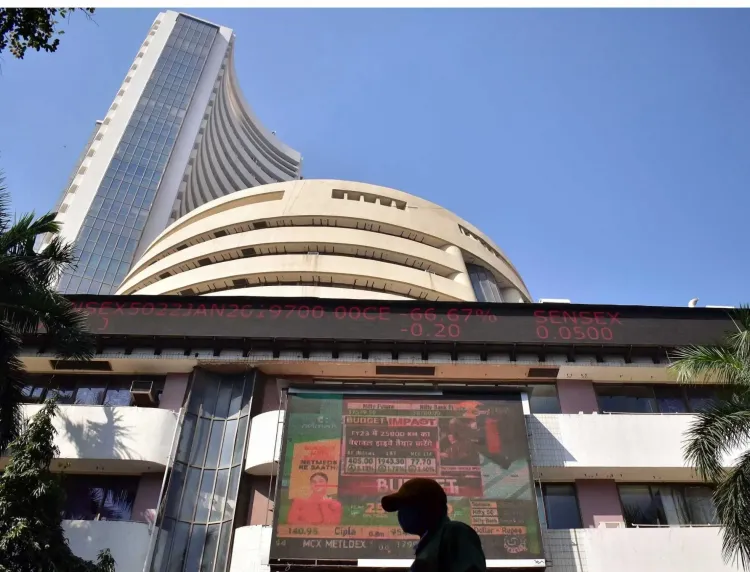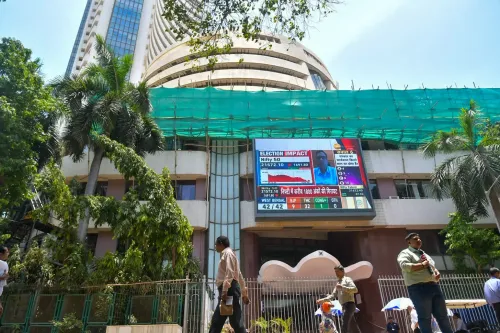Why Did Sensex and Nifty Close Lower Amid Global Trade Concerns?

Synopsis
Key Takeaways
- Sensex dropped 689.81 points to close at 82,500.47.
- Nifty declined by 205.4 points, settling at 25,149.85.
- Investor sentiment impacted by TCS earnings report.
- Broader markets saw declines in midcap and smallcap indices.
- FMCG and Pharma sectors showed gains amidst overall market pressure.
New Delhi, July 11 (NationPress) The Indian stock markets concluded the week on a negative note, impacted by escalating global trade concerns, following new tariffs imposed by US President Donald Trump on imports from Canada.
Investor confidence took a hit from a significant selloff in IT stocks after Tata Consultancy Services (TCS) announced disappointing earnings for the first quarter (Q1) of FY25.
The Sensex fell by 689.81 points, representing a decline of 0.83 percent, closing at 82,500.47. Similarly, the Nifty index decreased by 205.4 points, or 0.81 percent, settling at 25,149.85.
“The domestic market faced a downtrend due to a cautious start to the Q1 earnings season and increasing tariff threats from the US, which may impose a 35 percent tariff on Canada,” stated Vinod Nair from Geojit Investments Limited.
“While investors might adopt a buy-on-dips strategy focusing on quarterly earnings, the current premium valuations and global challenges, such as reduced spending and tariff uncertainties, might limit new investments,” Nair added.
From the 30 stocks listed on the Sensex, top losers included TCS, Mahindra and Mahindra, Tata Motors, Bharti Airtel, HCL Technologies, and Titan, which experienced losses of up to 3.5 percent.
Conversely, Hindustan Unilever, Axis Bank, Sun Pharma, NTPC, and Eternal emerged as the top gainers.
Broader markets also faced challenges, with the Nifty MidCap index declining by 0.88 percent, and the Nifty SmallCap index dropping by 1.02 percent.
Sector analysis revealed that IT and auto stocks were the most affected, as both the Nifty IT and Nifty Auto indices fell nearly 1.8 percent each.
Lower-than-anticipated quarterly earnings from TCS significantly impacted the IT sector. Other sectors like realty, oil and gas, media, energy, banking, metal, and consumer durables also closed in the red.
Yet, certain market segments showed resilience. The Nifty FMCG and Pharma indices closed positively, providing some support to the overall market.
Analysts observed that the markets were under pressure on Friday, losing over half a percent due to weak indicators.
“The session opened negatively following the disappointing report from IT giant TCS, worsened by profit-taking in major stocks across various sectors,” commented Ajit Mishra of Religare Broking Limited.
He further noted that market sentiment remained subdued due to ongoing uncertainties surrounding tariff-related issues and a weak commencement to the earnings season.
Meanwhile, market volatility experienced a slight increase, with the India VIX, a measure of investor sentiment and market volatility, rising by 1.24 percent to finish at 11.81.










